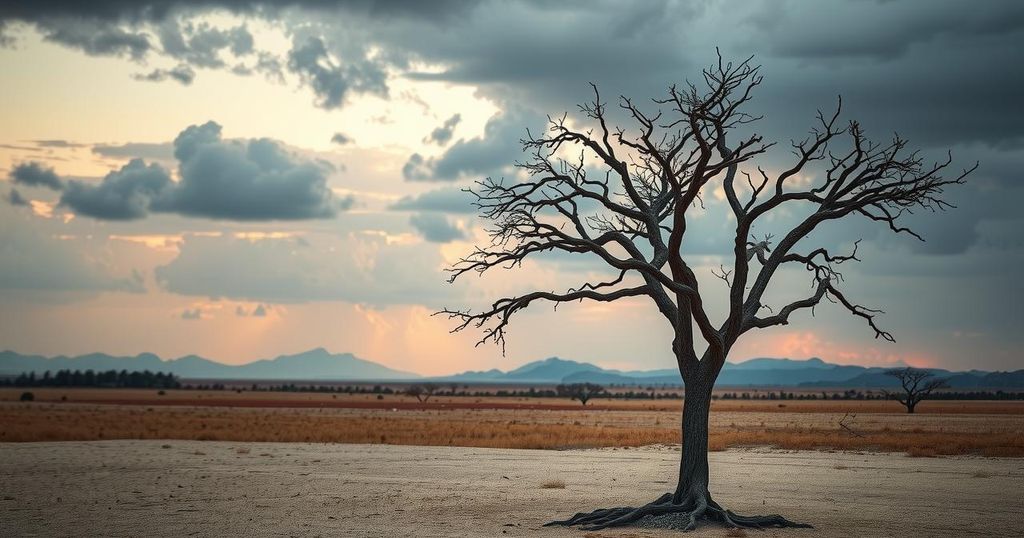Understanding the Drought Crisis in Southern Africa
Southern Africa is currently experiencing a severe drought, affecting approximately 61 million people and prompting states of emergency in several countries, including Namibia. The drought has largely been attributed to climate change, contributing to an increase in natural disasters worldwide. Immediate collective action against climate change is critical to address the escalating crisis and its effects on communities.
Southern Africa is currently grappling with an unprecedented drought, considered one of the most severe in over a century. An estimated 61 million people are affected, with over 20 million classified in urgent need (IPC Phase 3). Countries including Botswana, Namibia, Lesotho, Malawi, Zambia, and Zimbabwe have declared states of emergency in response to the crisis.
Namibia, in particular, faces extreme conditions, with roughly 40% of its population experiencing acute food insecurity. As food reserves dwindle to just 16%, the government has resorted to culling approximately 700 wild animals. This includes 83 elephants, 30 hippos, and 100 elands, intended to help alleviate hunger among the populace.
Historically, Namibia has faced similar challenges, having declared states of emergency due to drought in 2013-2014, 2015-2016, and 2018-2019. The underlying causes of this drought largely stem from climate change, a phenomenon influencing natural disasters globally, including California wildfires and floods in Spain.
Data reveals a concerning trend in the rise of natural disasters, evidencing a clear link to climate-related changes. From 1980 to 1999, there were 4,212 natural disasters resulting in 1.19 million deaths. This figure increased significantly from 2000 to 2019, with a total of 7,348 disasters and 1.23 million deaths reported, underscoring the urgent need to address climate change.
Environmental catastrophes are not confined to one region; they are occurring worldwide with increasing intensity. Namibia, renowned for its stunning landscapes and wildlife, is emblematic of the broader global struggle. Action against climate change is imperative to safeguard the future of both the country and the planet.
For individuals residing outside affected areas, the climate crisis remains relevant. The ramifications of inaction on climate change are dire, affecting global dynamics and individual lives. Even if personal efforts may seem insignificant, collective action is essential for meaningful change, which must be initiated immediately to prevent irreversible damage.
The urgency to combat climate change has been pressing for nearly 170 years, highlighting the importance of proactive measures to mitigate its effects. The time to act is now, as delaying action only exacerbates the consequences that humanity faces.
In summary, Southern Africa is enduring a severe drought, particularly affecting Namibia, where food insecurity is rampant. The historical context of recurring droughts, compounded by climate change, necessitates immediate and collective action to address these challenges. Natural disasters are rising globally, emphasizing the need for a unified response to combat climate change and secure a sustainable future for all.
Original Source: www.theteenmagazine.com




Post Comment